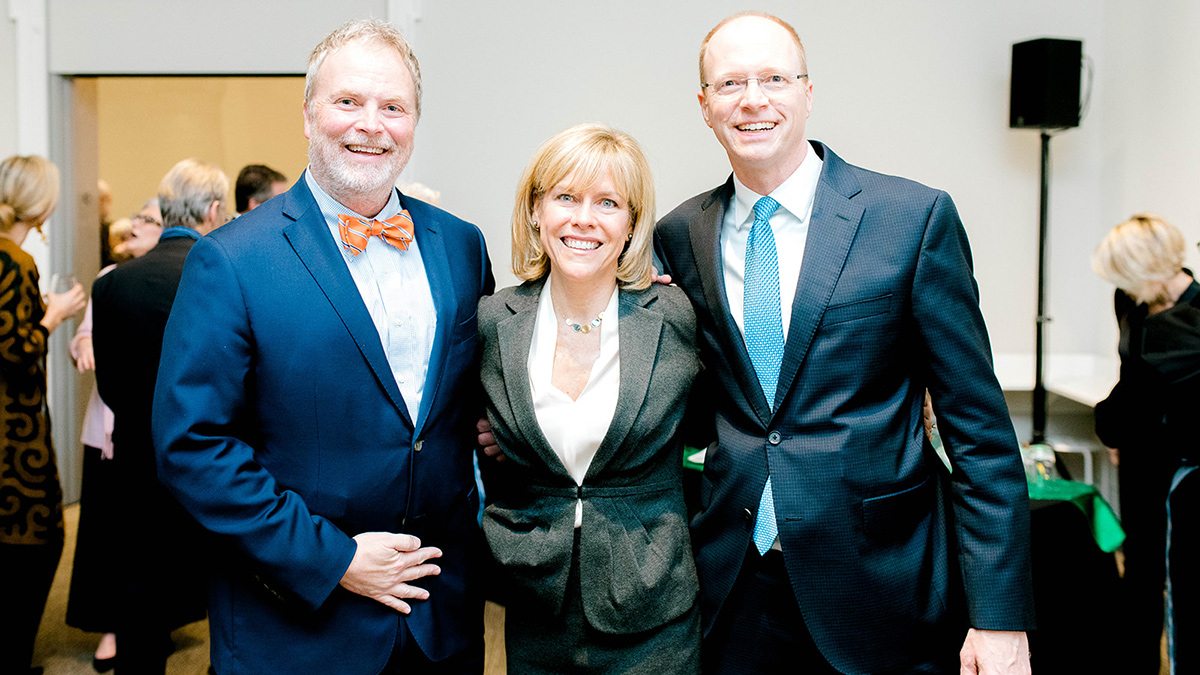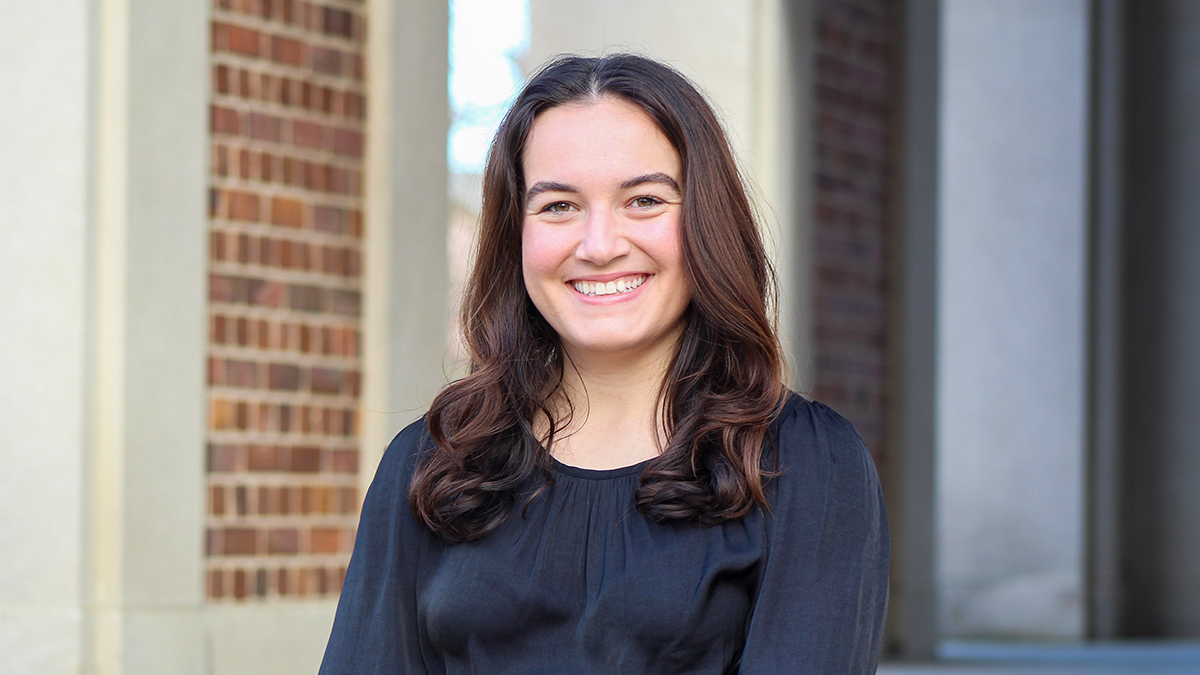Building a better future
Bank of America invests in military families, first-generation and underrepresented students, frontline health care workers and the arts.

Bank of America is a valued supporter of the University of North Carolina at Chapel Hill with a history of diverse philanthropic giving. In the past year alone, the bank has invested in a wide range of programs and initiatives at Carolina in support of veterans and their families, first-generation and underrepresented high school students, frontline health care workers and the arts.
“Bank of America values our long-standing partnership with UNC, and we are pleased to support these important initiatives that positively benefit so many local citizens, as well as communities, in the Triangle and throughout the state,” said Kari Stoltz, Bank of America Triangle Market president.
“The variety of these programs aligns well with our company’s overall commitment of $1 billion to help advance racial equality and economic opportunity, with a particular focus on creating opportunity for people and communities of color. This latest commitment builds on economic mobility and workforce development programs Bank of America already supports in local markets and sharpens the focus of that work, accelerates resources and adds a particular emphasis on health services during the pandemic.”
Supporting those who serve
Continuing its 100-year tradition of support for service personnel and their families, Bank of America made a $250,000 commitment to UNC-Chapel Hill to create the Bank of America Military Families Scholarship Endowment Fund. The fund will provide scholarship support for military families through the University’s Red, White and Carolina Blue Challenge.
Programs like the Red, White and Carolina Blue Challenge allow UNC-Chapel Hill to support academic excellence and create opportunity through scholarships for students who earn their place at Carolina, regardless of their ability to pay. Students like Reina Kinnaly, a first-generation military dependent from Jacksonville, North Carolina. Thanks to the support from the Carolina Covenant and the Red, White and Carolina Blue Challenge, Reina graduated from Carolina in May 2020 with a degree in exercise and sport science.
Read more about Reina’s story and the Bank of America Military Families Scholarship Endowment Fund
Making ‘college dreams come true’
Now, Reina is passionate about making sure other prospective students learn about the resources that colleges have to offer. After graduation, Reina joined the Carolina College Advising Corps, a program that helps low-income, first-generation and other underrepresented students apply to and enroll in college by placing recent UNC-Chapel Hill graduates as college advisors in selected public high schools throughout the state. Currently, the program has 62 college advisers serving in 80 high schools.
Since 2013, Bank of America has made an average contribution of $25,000 a year to support Carolina College Advising Corps advisers at eight Charlotte-Mecklenburg high schools. In 2019–20, the program’s advisers serving Charlotte-Mecklenburg conducted 7,067 meetings with students, coordinated 144 college tours and hosted 111 visits from college admissions representatives. Advisers motivated students to submit 3,679 college applications, which resulted in 47% of all seniors served receiving college acceptances. Additionally, seniors received a total of $1,334,331 in non-institutional scholarship awards to support tuition and other related costs.
This year, Bank of America committed $30,000 in support of Carolina College Advising Corps and an additional $7,300 to fund financial aid workshops and events at all eight high schools.
“Since many of our students do not live near the school, family engagement has been a continuous challenge for our student services department,” noted Dominique Brodie ’19, a Carolina College Advising Corps adviser in Mecklenburg County. “Last year, my school only reached 19% of family engagement, but this year I have surpassed that. I’ve almost reached my year-long goal of 25%.”
The additional support from Bank of America will help advisers improve and promote financial aid workshops and engage more parents and families.
Supporting first responders and health workers
Bank of America also contributed $150,000 toward a new app launched by UNC Health and UNC School of Medicine to provide mental wellness resources to first responders and frontline workers during the COVID-19 pandemic.
The Heroes Health app was developed by the UNC Institute for Trauma Recovery, Google Cloud and volunteers across Alphabet and founded by Dr. Samuel McLean, attending physician and research vice-chair in the UNC School of Medicine. As a practicing emergency physician and COVID-19 unit worker — and a COVID-19 survivor who infected two of his family members — McLean understands firsthand the difficulties COVID-19 workers face.
“It’s important to give first responders and health care workers a simple, quick way to regularly check in on their mental health and immediately find resources,” said McLean. “It is also important to provide organizations with tools that help empower them to care for each other.”
For individual health care workers, the Heroes Health app delivers short mental health self-assessments each week and displays summary reports to help them better understand the state of their own mental health and changes over time. The app also provides links to immediate support and mental health resources, emphasizing free and low-cost services. Heroes Health receives no financial benefit or support from the goods or services listed. For health care organizations that partner with the Heroes Health Initiative, the app provides a way to perform proactive worker outreach and the aggregate data necessary to identify when and where more worker support is needed.
The Heroes Health app is available through Apple’s App Store and the Google Play Store in the United States, free of charge to first responders, health care workers and their organizations.
Learn more about the Heroes Health app and initiative
Illuminating cultures and histories
The arts provide an outlet and gateway to understanding other points of view and a variety of cultures and histories. This year, Bank of America contributed $200,000 toward two exhibitions at the Ackland Art Museum on UNC-Chapel Hill’s campus.
“Yayoi Kusama: Open the Shape Called Love,” was on view Jan. 31, 2020, until the museum had to close in mid-March because of COVID-19. The Ackland pivoted quickly and extended the exhibition online through July 26, 2020, and it may be extended again so that visitors will still have a chance to see it when the Ackland reopens. Any further extensions will be announced on ackland.org.
The almost 8,000 patrons who were lucky enough to visit “Open the Shape Called Love” in person experienced a smaller-scale, more contemplative, handmade side of Yayoi Kusama than most people are familiar with; she is a revered contemporary artist known primarily for her large-scale blockbuster installations.
The second exhibition Bank of America is supporting, “Buddha and Shiva, Lotus and Dragon: Masterworks from the Rockefeller Collection at Asia Society,” will be on display at the Ackland next year. This important collection underscores art’s capacity to encourage cross-cultural dialogue and influence economic and public policy. The selection of sculptures, bronzes and ceramics ranges from the late 6th century BCE to the early 19th century CE and originates from Cambodia, China, India, Japan, Korea, Nepal, Sri Lanka, Thailand, Tibet and Vietnam.
Both collections supported by Bank of America allow viewers to connect with the complexity and beauty of the wider world by getting close to art.
View digital exhibition materials and a 360-degree video of the exhibition
In total, Bank of America contributed more than $630,000 to Carolina programs and initiatives in 2019–20. Its generous contributions count toward the University’s most ambitious fundraising campaign in history, For All Kind: the Campaign for Carolina — and go a long way toward building a better future for us all.




